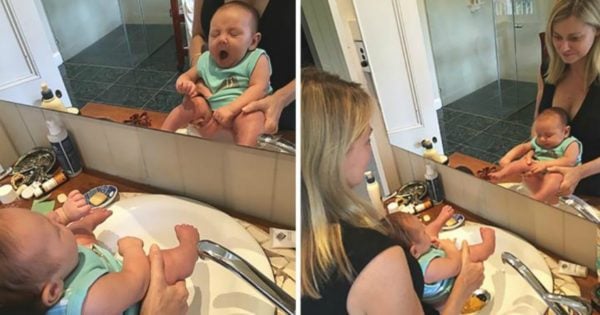Queensland mum Cindy Lever doesn’t put her baby girl in nappies. She waits till 15-week-old Chloe lets her know she wants to go to the toilet.
“Her signals that she needs to go to the toilet are very, very vocal now,” Lever explains. “She will carry on for quite some time until I eventually respond to her and take her.”
If Lever takes Chloe to the toilet and she doesn’t need to go, Chloe will let her know.
“She will arch her back against me and kick her legs straight out, and so we walk away,” she explains.
“I’m not forcing her. People seem to think that I’m trying to do something that’s not natural for a baby. But it is actually natural for a baby to tell you when they need to wee and not want to sit in wet, dirty nappies.”
Chloe has been almost entirely nappy-free since birth. Lever has been reading her signals all that time. It’s a process known as elimination communication, used in many cultures around the world.
That’s why Lever, a journalist, was so surprised that her story caused such a huge stir when she shared her story earlier this week.




Top Comments
I loved ECing with my babies. It was nice to save having to wash nappies but the real joy was sharing the communication. My babies really enjoyed it and I liked that they were always clean and dry. Both my ECed babies were dry through the night and independent toilet users by 12 months. OTOH my nappy trained child was in nappies for years and not dry at night until 4yo.
I was thinking is it worth it? I dont like sink idea but sure there are alternatives. Well I guess we toilet train our kittens or puppies from a young age, so maybe it would be easy for a baby to do!